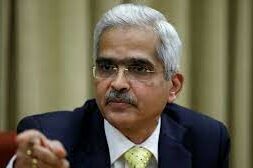
Manas Dasgupta
NEW DELHI, May 22: Even as the Reserve Bank of India advised people not to make a rush to the banks to exchange Rs 2,000 denomination notes being taken out of circulation, a BJP leader and advocate has moved the Delhi High Court with a public interest litigation to ban exchanging the notes without any proof of identity.
Advocate Ashwini Kumar Upadhyay, in his petition, sought direction to ensure that ₹2,000 banknotes are “deposited in respective bank accounts only so that no one could deposit the money in others’ bank account.” He termed the RBI’s May 19 and the State Bank of India’s May 20 notifications, which permit the exchange of Rs 2,000 denomination of notes without obtaining any requisition slip or identity proof as “arbitrary and irrational.”
The petition was filed after the RBI governor Shaktikanta Das in a bid to allay the concerns of the people about the legal tender status of the notes after the September 30 deadline for exchange, stressed earlier in the day that there was no need to rush to the banks and signalled the last date was only meant to nudge people to return the notes soon.
Speaking to media persons, Das said a time limit had been specified along with the May 19 notification on the decision to withdraw Rs 2,000 currency notes from circulation just to ensure that the “announcement is taken seriously” and assured that there were adequate currency stocks with the banking system to replace these notes.
He also said he did not expect the kind of rush to the banks witnessed after demonetisation of Rs 1,000 and Rs 500 notes in 2016. “I will appeal to people there is no need to rush to the banks — four months’ time has been given. You can do it anytime that it suits you. By September 30, please exchange it,” the RBI chief pleaded, emphasising that not setting a deadline would have made the process open-ended and “endless”.
“Let me assure you, we have more than adequate quantities of notes available already printed in the system… not just with the RBI, but also at the currency chests operated by banks. There is adequate stock available and there is no reason to worry whatsoever,” Das assured.
Justifying the reason for the PIL, the petitioner said a large amount of the ₹2,000 denomination banknotes has reached either in lockers of individuals or has “been hoarded by the separatists, terrorists, Maoists, drug smugglers, mining mafias and corrupt people.” In his plea Upadhyay further said, “Recently, it was announced by the Centre that every family has an Aadhaar card and a bank account. Therefore, why is RBI permitting the exchange of ₹2,000 banknotes without obtaining identity proof?”
“It is also necessary to state that 80 Crore BPL families receive free grains. It means 80 crore Indians rarely use ₹2,000 banknotes. Therefore, petitioner also seeks direction to RBI to ensure that ₹2,000 banknotes are deposited in bank account only,” the plea added.
Earlier in the day, the RBI directed all the banks to ensure that the over-the-counter exchange facility for the high-denomination notes was provided to the public, as was being done in the past. The regulator also advised banks to provide appropriate infrastructure at their branches such as a shaded waiting space and drinking water facilities for people as the exercise is being conducted in the summer season.
“Banks shall maintain daily data on deposit and exchange of ₹2,000 banknotes in a format which includes the bank’s name, date, amount of ₹2,000 notes exchanged, amount of ₹2,000 notes deposited, and total amount received and submit the same as and when called for,” the RBI circular to lenders said.
As per RBI, the ₹2,000 denomination banknote was introduced in November 2016 primarily to meet the currency requirement of the economy in an expeditious manner after the withdrawal of the legal tender status of all ₹500 and ₹1,000 banknotes in circulation at that time.
“About 89% of the ₹2,000 denomination banknotes were issued prior to March 2017 and are at the end of their estimated life-span of 4-5 years. The total value of these banknotes in circulation has declined from ₹6.73 lakh crore at its peak on March 31, 2018, (37.3% of notes in circulation) to ₹3.62 lakh crore constituting only 10.8% of notes in circulation on March 31, 2023,” the RBI has said.
On May 20, State Bank of India (SBI), in a communication to the chief general managers of all its local head offices, instructed that the facility of exchange of ₹2,000 denomination banknotes to all members of the public up to a limit of ₹20,000 at a time will be allowed without obtaining any requisition slip. “Further, no identity proof is required to be submitted by the tenderer at the time of exchange,” the SBI communication stated.













